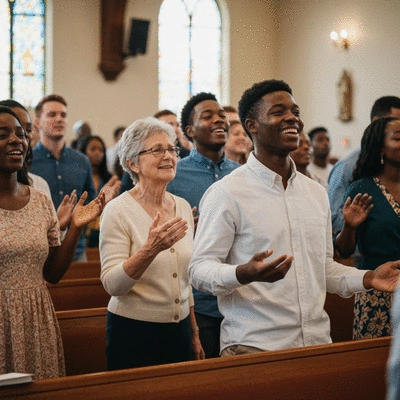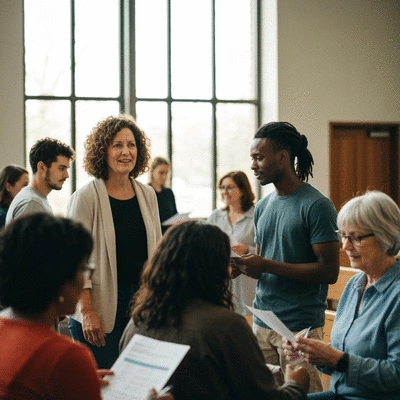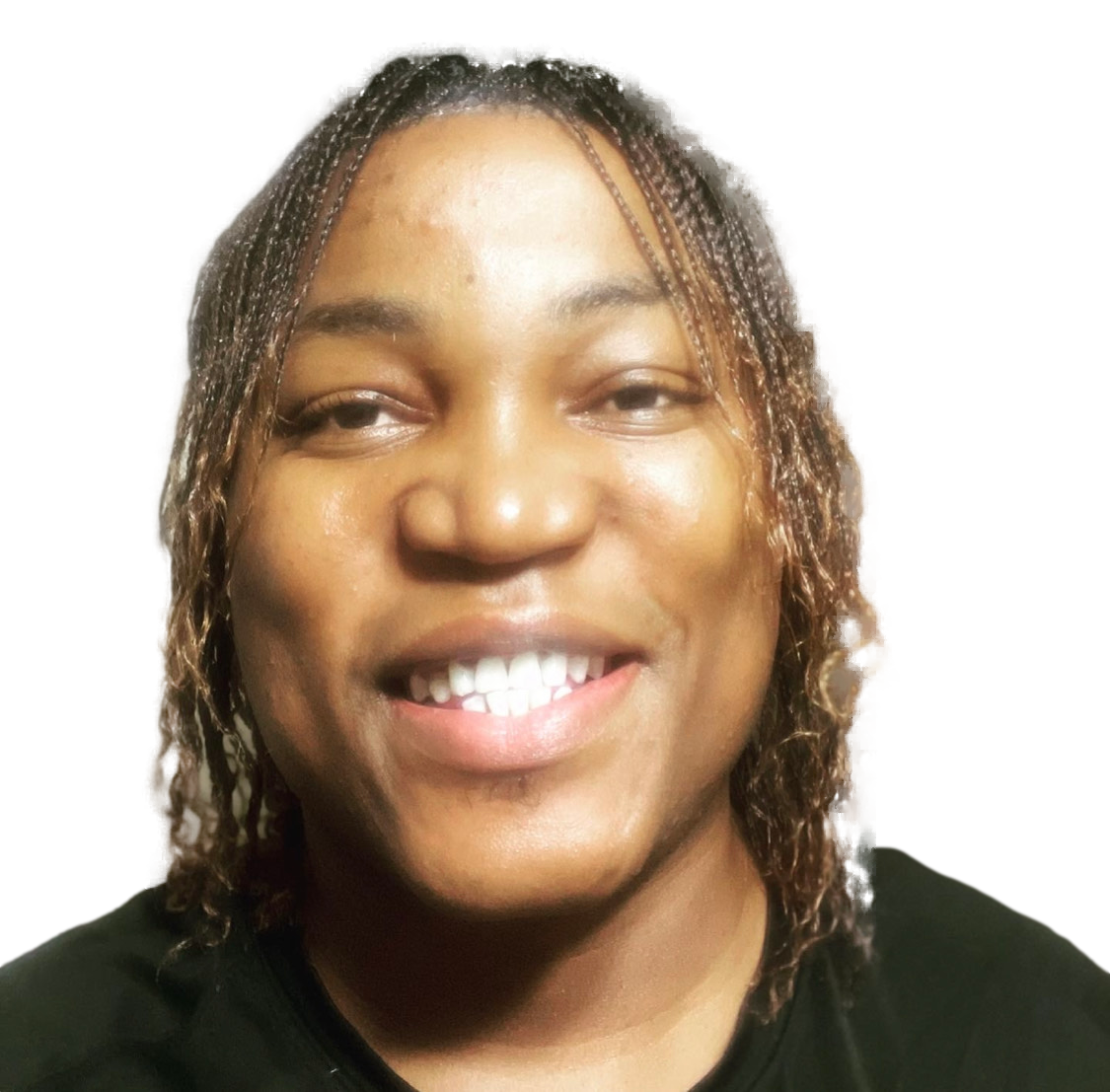Why Diversity Matters in Faith-Based Organizations
Enriches worship experiences, broadens perspectives, and strengthens community ties, creating a more welcoming environment for all.
- Enriched Worship
- Broader Perspectives
- Stronger Ties
Welcome to The Upper Room DFW – your guide to finding a spiritual home!
Oct 21
What if your church community could truly reflect the vibrant tapestry of cultures that enrich our lives? The journey towards embracing diversity not only enhances our worship experience but also strengthens the bonds we share in faith. Let’s explore the essential lessons on celebrating diversity within our church community.
This visual highlights the core strategies and foundational principles for fostering a diverse and inclusive environment within our church, emphasizing active engagement and continuous growth.
Enriches worship experiences, broadens perspectives, and strengthens community ties, creating a more welcoming environment for all.
Active efforts through education, relationship-building, and multicultural ministries ensure an inclusive environment.
Gathering feedback, tracking participation, and evaluating outreach are crucial for continuous improvement.
Utilizing educational resources and community engagement to foster ongoing understanding and appreciation.
At The Upper Room DFW, we believe that a vibrant church community thrives on diversity. It enriches our worship and strengthens our bonds. When we celebrate different backgrounds and experiences, we cultivate a faith community that reflects the full spectrum of God's creation.
Why does diversity matter in faith-based organizations? Simply put, it enhances our collective understanding and spiritual growth. Embracing variations in culture, race, and perspectives allows us to better love one another, just as we are called to do in our faith.
Diversity is essential for fostering a sense of belonging. When you walk into a church that reflects various cultures, it feels more welcoming! Here are some key reasons why diversity is crucial:
When our church community thrives on diversity, we become a living testament to the inclusivity and love that faith promotes.
The Bible teaches us about the importance of unity in diversity. In Galatians 3:28, we read that there is neither Jew nor Gentile, neither slave nor free, nor is there male and female, for we are all one in Christ. This scripture reminds us that our differences do not divide us; instead, they enhance our unity in faith.
As we reflect on these biblical teachings, we can appreciate how God's love encompasses everyone, inviting all to join the family of believers. Celebrating diversity is not just a choice; it is a call rooted in our faith.
Different perspectives contribute to a richer understanding of our shared faith journey. Each story and experience adds depth to our discussions and helps us grow. Consider how a conversation with someone from a different background can open your eyes to aspects of faith you might not have considered before.
By embracing these perspectives, we not only learn but also create an environment where everyone feels valued and heard. Let's encourage such dialogues within our church to strengthen our community.
Faith plays a pivotal role in fostering a culture of inclusion and acceptance. It challenges us to look beyond our comfort zones and embrace one another with open hearts. At The Upper Room DFW, we encourage our congregants to practice acceptance actively—whether through community service, fellowship events, or simply reaching out to someone new.
When we allow faith to guide our actions, we can create a church environment that truly embodies the love of Christ. Let's take this commitment seriously, ensuring that everyone feels welcomed and included.
Now that we understand the importance of diversity, let's explore effective strategies to promote inclusion in our church community. Embracing diversity is not just about recognition; it requires active efforts to create an inclusive environment.
Here are some effective strategies for promoting inclusion:
By implementing these strategies, we can ensure that our faith community is a reflection of the diversity that enriches our lives.
Educational initiatives are vital in fostering a deeper understanding of diversity in our church community. Workshops and seminars can provide valuable insights and tools to help everyone feel included.
Through these initiatives, we can educate ourselves and cultivate a sense of community that embraces all members.
Workshops focusing on cultural competency are a fantastic way to bridge gaps within our community. They encourage open conversations and help us understand each other’s backgrounds better. By participating, we learn to interact with empathy and respect, essential qualities in a faith-based organization.
Such engagements foster mutual understanding and create an atmosphere where everyone feels valued and welcomed.
Our sermons have the power to address pressing societal issues, including racial equity and social justice. When we weave these topics into our messages, we not only educate our congregation but also inspire action.
By highlighting these themes, we can show our commitment to standing against injustice and fostering a loving and inclusive environment.
Diversity training for church leaders and members is a proactive step toward enhancing inclusivity. By equipping our leaders with the tools to handle diverse situations effectively, we empower them to create an environment where everyone feels accepted. Investing in education not only benefits individuals but also strengthens our church community as a whole.
Building relationships among diverse groups is the heart of fostering inclusivity. When we make a concerted effort to connect, we create a sense of belonging that resonates throughout our community.
Here are some creative ways to build these relationships:
Fostering these relationships not only enhances our church experience but strengthens our collective witness in the DFW area.
Creating safe spaces for open dialogue is essential. These spaces allow individuals to express their thoughts and feelings without fear of judgment. Regular forums or small group discussions can encourage candid conversations about faith, culture, and personal experiences. In doing so, we not only learn from one another but also deepen our connections as a community.
Intercultural fellowship opportunities can be an engaging way to celebrate diversity within our church. Events like cultural potlucks, music nights, or holiday celebrations can bring people together to share their traditions.
These gatherings foster friendships and create a sense of unity that transcends background differences.
Community outreach is a powerful method to promote mutual understanding. By engaging in service projects together, we can build relationships while making a positive impact. Whether it’s volunteering at a food bank or participating in a community clean-up, these activities can foster teamwork and cooperation.
Through outreach, we not only serve others but also strengthen the bonds within our diverse church community.
To truly embrace diversity within your church, consider initiating a "Cultural Exchange Month." During this time, congregants can share their unique traditions, foods, and stories through various events. This interactive approach not only highlights the beauty of different backgrounds but also fosters deeper connections among members, making everyone feel valued and included.
Diversity enriches worship experiences, broadens perspectives, and strengthens community ties, creating a more welcoming environment for everyone. It helps the church reflect the full spectrum of God's creation and enhances collective understanding and spiritual growth.
The Bible, particularly Galatians 3:28, teaches about unity in diversity, stating that "there is neither Jew nor Gentile, neither slave nor free, nor is there male and female, for you are all one in Christ Jesus." This scripture emphasizes that differences enhance unity in faith and that God's love encompasses everyone.
Effective strategies include educational initiatives (workshops on cultural competency, sermons on racial equity, diversity training), building relationships (creating safe spaces for dialogue, intercultural fellowship opportunities, community outreach), and implementing multicultural ministries.
Success can be measured by gathering feedback from congregants through surveys and focus groups, tracking participation in multicultural events, and evaluating the effectiveness of outreach programs. These methods help assess what resonates with the community and where improvements can be made.
Resources include books and literature on inclusive church practices, online platforms and forums for sharing experiences, and participating in local community events that celebrate different cultures. These tools help deepen understanding and commitment to diversity and inclusion.
As we continue to embrace the vibrant tapestry of cultures within our church community, it's essential to measure the impact of our diversity efforts. This reflection not only helps us understand the effectiveness of our initiatives but also guides us in making necessary adjustments to enhance inclusivity. Here are some key areas to consider:
Gathering insights from our congregants is a vital step in assessing our diversity initiatives. Feedback can come in various forms, and it’s crucial to encourage open and honest communication. By understanding what resonates with our community, we can build a stronger, more inclusive environment.
Tracking participation in multicultural events is another way to gauge success. Are more members attending? Are new faces showing up? These metrics can reveal whether our efforts are truly creating a welcoming space.
Implementing a feedback system is essential. For instance, we could consider using digital platforms or physical forms to collect thoughts post-events. This practice not only shows that we value opinions, but it also fosters a sense of belonging among churchgoers.
Tracking attendance at our events can provide valuable insights. We might find that certain activities resonate more than others. Keeping a record helps us understand what works and what might need a refresh.
Lastly, evaluating outreach programs is crucial. Are we reaching the communities we aim to serve? Gathering statistics and sharing success stories can help paint a picture of our overall outreach success. This transparency builds trust and demonstrates our commitment to diversity.
Just like our faith journey, celebrating diversity is an ongoing process. To nurture this growth, we need to invest in resources that enhance our understanding and engagement with inclusion. Here's how we can cultivate a culture of continuous learning:
There are numerous resources available that can aid in our quest for more inclusive practices. From books to online platforms, these tools can help us deepen our understanding and commitment to diversity.
By tapping into these resources, we can foster a more profound understanding of diversity and inclusion, making our church a beacon of hope and acceptance.
Now is the time to take action and invite our community to share in this journey of celebration! Together, we can create a church environment where everyone feels valued and seen.
Let’s encourage our members to share their rich cultural backgrounds and stories. Personal narratives can bridge gaps and create deeper connections among our congregation.
Keep an eye out for exciting events that highlight our diverse community! These gatherings are perfect opportunities for fellowship and understanding.
Your involvement matters! We invite everyone to volunteer and participate in our diversity initiatives. Together, we can foster an inclusive spirit that uplifts our entire church community.
Here is a quick recap of the important points discussed in the article:
Passionate advocate for faith-based communities. Dedicated to fostering connections among local congregations.
MICHAEL K is dedicated to helping individuals and families find their spiritual home in the DFW metroplex, nurturing vibrant community ties. Join her on our blog for insights and connections that simplify your search and enhance your faith journey.
Passionate advocate for faith-based communities. Nurturer of community ties.
Evelyn Thatcher is dedicated to fostering connections among local congregations in the Dallas-Fort Worth area, ensuring everyone finds a spiritual home that resonates with their beliefs and values. Through The Upper Room DFW, she empowers the faith community to discover diverse worship venues and community engagement opportunities. Join her on our blog for insights and stories that uplift and enrich your faith journey and enhance your sense of belonging.


